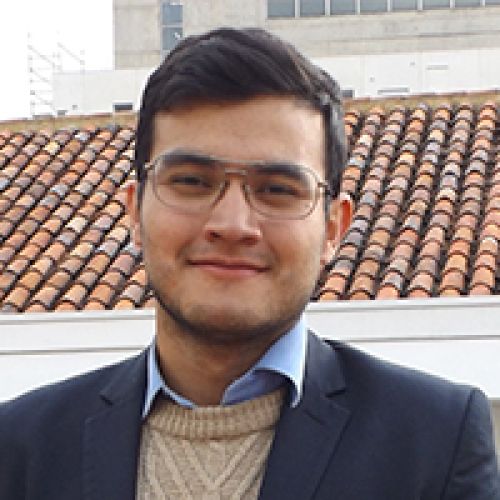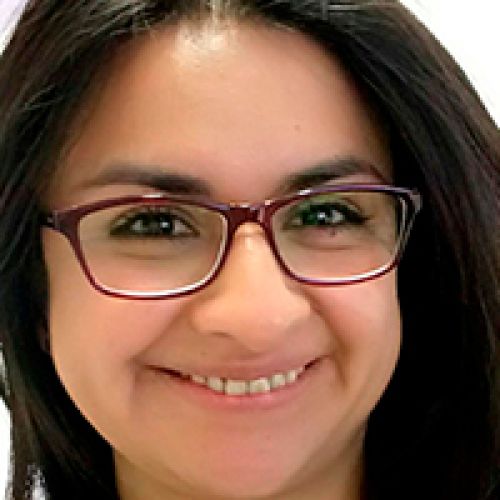RESEARCH DEPARTMENT

Mission
To assist in creating a high-quality research agenda aimed at establishing the Faculty as a national and international center for innovative and socially impactful research. This research should also have a positive impact on the teaching and learning processes within the Faculty.
Vision
The Research Department is a branch of the Faculty of Jurisprudence at Universidad del Rosario, dedicated to serving and supporting faculty researchers with their research interests. It offers efficient and innovative services for creating high-quality research agendas.
OBJECTIVES
The short and medium-term goals of the Faculty of Jurisprudence’s Research Department are as follows:
To carry out activities to share ongoing research projects within the Faculty
To disseminate research output, products of the formative research within the Faculty
To help create spaces for sharing formative researc
MAIN TOPICS
The objective of this research topic is to promote theoretical-legal reflection on the most significant issues that arise during the course of an entrepreneur’s activities. This will be done within the framework of their management abilities, internal relationships (among administrators, owners, and employees) and external relationships (with clients and competitors). This topic seeks to investigate and contribute to debates on consumption, competition, and corporate governance.
This topic investigates, from an interdisciplinary perspective, the challenges and problems facing the field of law due to globalization. Studies on the legitimacy, efficiency, and operating of international justice and international institutions are particularly relevant, not only in relation to states, but also in relation to individuals, companies, and communities, among others.
This topic identifies and addresses, from a multidisciplinary perspective, the difficulties and challenges that Colombia faces in advancing the social rule of law. This aims to ensure a fairer and more inclusive citizenship, and to achieve long-lasting peace. It is particularly relevant to undertake research that critically analyzes the implementation of peace agreements. This is to ensure that transitional justice contributes to strengthening the rule of law and the ways of achieving democratic inclusion through the legal and institutional channels of the state.
As the national state, sovereignty, and traditional theory of the separation of powers are eroded, we endeavor to understand, analyze, and critique, from a comparative perspective, the internal and external dynamics that have characterized public power and public policies in Colombia.
Consulte aquí los términos y condiciones
TEAM
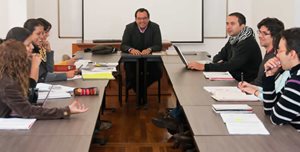
HUMAN RIGHTS RESEARCH GROUP
MinCiencias Category
Group “A1” – Call for Proposals 2021
Director: María Teresa Palacios Sanabria
The Human Rights Research Group at Universidad del Rosario was established in 2003. It currently consists of a team of highly qualified professors, Including experts in human rights, who have extensive experience in, and are committed to, research projects, publishing, teaching, and outreach in their field of research.
The group researches topics such as: Human rights protection mechanisms, public policies, democracy, violence and peace, environmental rights, women’s rights, migrants, victims, persons with disabilities, elderly people, and other groups under special protection. It also plays a role in educating and advocating for human rights through its Research Incubator and its Public Interest and Human Rights Clinic.
Recognized by Colciencias for outstanding results, quality and visibility in research, training, dissemination, and innovation efforts, the Group has been awarded the prestigious A1 Category in the national call for the recognition and measurement of research, technological development, and innovation groups. This acknowledgment extends to researchers within the National System of Science, Technology, and Innovation - SNCTI 2021.
Active research areas within the group:
- Emerging Rights and Differential Approach
- Human Rights Protection Mechanisms
- Post Conflict and Democracy

INTERNATIONAL LAW RESEARCH GROUP
MinCiencias Category
Group “A1” – Call for Proposals 2021
Director: Enrique Alberto Prieto-Ríos
In 2000, the Faculty of Jurisprudence started a project to identify strengths and weaknesses within its areas of research, aimed at bolstering research efforts. It became evident that international law was a common thread throughout the project. On this matter, within the guidelines on areas of research in the document “Policies, strategies, and actions for improving research”, it is clear that within the previously defined areas of strength and the agenda of identified problems, the topic of “international law” is consistently present. In this sense, in 2001 the initiative was taken to focus on international law as a research topic, and, more broadly, to enhance academic support in the field. This process was formalized in 2006 with the establishment of what we know today as the International Law Research Group. It started its work as an independent group, and thanks to constant research and the participation of new researchers, it managed to establish itself.
Recognized by Colciencias for outstanding results, quality and visibility in research, training, dissemination, and innovation efforts, the Group has been awarded the prestigious A1 Category in the national call for the recognition and measurement of research, technological development, and innovation groups. This acknowledgment extends to researchers within the National System of Science, Technology, and Innovation - SNCTI 2021.
Active research areas within the group:
- Critical and Theoretical Approaches to International Law
- International Law and Globalization
- International Law in the context of different international and national tribunals

PRIVATE LAW RESEARCH GROUP
MinCiencias Category
Group “A1” – Call for Proposals 2021
Director: David Hernando Barbosa Ramírez
From 2001 until October 2006, private law researchers associated their work with the Carlos Holguín Public Law Research Group. Within the framework of this group, research in the areas of civil law commenced in 2001, commercial law in 2003, and arbitration in 2005. However, after two years of important academic output in specific areas of private law, the Private Law Research Group independently registered with COLCIENCIAS.
The group aims to carry out high-quality academic research to advance the understanding of private law and to address current issues in the field. In this context, it aims to:
- Examine the regulations of national private law and identify challenges regarding their application, with the aim of coming up with solutions that align legislative discourse with Colombia’s socio-economic needs.
- Conduct legal studies and engage in academic forums that enable reflection on new national and international trends regarding private law, and exchange and disseminate the insights gained on both a national and international scale.
- Analyze how Colombian private law influences integration processes in supranational groups, and the challenges this poses to the development of traditional legal institutions, using tools developed by comparative law.
With this in mind, the group has a significant number of researchers who studied at prestigious Colombian and foreign universities, and whose work has been published and disseminated in national and international books and journals.
Recognized by Colciencias for outstanding results, quality and visibility in research, training, dissemination, and innovation efforts, the Group has been awarded the prestigious A1 Category in the national call for the recognition and measurement of research, technological development, and innovation groups. This acknowledgment extends to researchers within the National System of Science, Technology, and Innovation - SNCTI 2021.
Active research areas within the group:
1.- Technology in Law and Law in Technology
2.- Inter-group research in Gender and Law
3.- Arbitration
4.- Civil Law
5.- Commercial Law
6.- Procedural Law and the Law of Evidence
7.- Labor Law and Social Security
8.- Law of Persons and Family Law
9.- Theories of Property and Sustainable Development in Urban and Rural areas of Colombia
10.- Confluence of Private and Public Law

PUBLIC LAW RESEARCH GROUP
MinCiencias Category
Group “A1” – Call for Proposals 2021
Director: Nicolás Figueroa García Herreros
The Public Law Research Group was created in August 1998, and was the Faculty’s first research group.
Objectives of the research group
The research that the group carries out addresses problems specific to Colombian reality, with a critical and interdisciplinary perspective. The Research Group believes that legal problems can only be analyzed in their entirety through dialogue with other social sciences, and when scientific knowledge is enriched or formed by contemporary methodologies and theories that illuminate issues traditionally unaddressed or made invisible by law. It has eight areas of research.
Achievements
The results of the projects that were carried out by the Public Law research team have enabled the Faculty’s research to reach both a national and international stage, have earned the University institutional accreditation both nationally and internationally, and have enabled the approval of the Master's in Administrative Law and the creation a Master’s and Doctoral program in Law.
Recognized by Colciencias for outstanding results, quality and visibility in research, training, dissemination, and innovation efforts, the Group has been awarded the prestigious A1 Category in the national call for the recognition and measurement of research, technological development, and innovation groups. This acknowledgment extends to researchers within the National System of Science, Technology, and Innovation - SNCTI 2021.
Active research areas within the group:
1.- Inter-group Research in Gender and Law
2.- Legal Systems, Constitutional Systems, and Protection
3.- Trends and Perspectives of Administrative Law
4.- The State on the Board: Globalization, Justice, and Responsibility
5. Environmental Law
6.- Inclusive Administrative Law, Geography, Inequality, and Technology
7.- Theoretical, Critical, and Interdisciplinary Legal Studies

CRIMINAL LAW RESEARCH GROUP
MinCiencias Category
Group “A1” – Call for Proposals 2021
Director: Wilson Martínez Sánchez
Recognized by Colciencias for outstanding results, quality and visibility in research, training, dissemination, and innovation efforts, the Group has been awarded the prestigious A1 Category in the national call for the recognition and measurement of research, technological development, and innovation groups. This acknowledgment extends to researchers within the National System of Science, Technology, and Innovation - SNCTI 2021.
The Criminal Law Research Group was officially established on August 19, 2008, and currently engages in various research activities with the aim of bolstering research in the following areas:
1. Economic Criminal Law
2. Inter-Group Research in Gender and Law
3. Current Issues in Criminal Law
4. Medical Responsibility
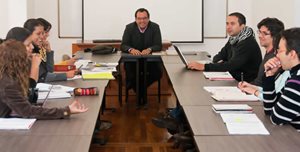
LABOR LAW AND SOCIAL SECURITY RESEARCH INCUBATOR
The Labor Law and Social Security Research Incubator emerged in 2008 as an academic initiative aimed at providing training in research topics and methodology for undergraduate students. These students, under the guidance of a mentor and by consistently submitting agreed-upon work, are interested in completing their course by submitting an original monograph or thesis.

LEGAL THEORY RESEARCH INCUBATOR
The Legal Theory Research Incubator was established in 2017 by students from the legal theory course led by Dr. Grenfieth Sierra, its director. Paula Andrea Borja Corredor is its coordinator and also an active member of the group. It has a method of assisted research through which its members are encouraged to enhance their research, argumentative, methodological, analytical, and interpretative skills by writing an essay on a topic of interest. Furthermore, the research incubator has established itself as a space for members to debate current issues, and has featured lectures by guest international professors.

INTERNATIONAL LEGAL CLINIC
This project sheet is applicable to research proposals that the professor will undertake as part of their work plan, and for proposals managed with various entities that do not require the formal presentation of a document or project sheet, and from which resources (financial or in-kind) have been obtained.

HUMAN RIGHTS IN DIGITAL ENVIRONMENTS
The human rights in digital environments research incubator addresses and enhances the potential for the internet to advance human rights such as freedom of expression, inclusion, and digital literacy. Likewise, it studies emerging issues in digital environments regarding law, such as privacy and self-determination, which are threated by state institutions and corporate powers.

STATE CONTRACTING INCUBATOR
Through state contracting, the government can fulfill its functions and ensure the general well-being of the country’s residents. This situation causes citizens, media, and supervisory bodies to be interested in how public resources are used. However, it is undeniable that, despite the importance of this state activity, unwanted situations have arisen that require a prompt and practical solution.
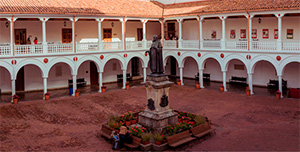
HUMAN RIGHTS RESEARCH INCUBATOR
The political, social, and cultural change that the country has faced over recent years, along with the demands from educational supervisory bodies, have led universities in the country to focus their attention on promoting research. There is a particular emphasis on aligning academic curricula with research training processes.

FISCAL POLICY FROM A GENDER PERSPECTIVE
Incorporating budgets and taxes with a gender focus must be aimed at solving issues that arise at the core of society. Therefore, it is the duty of governments to ensure that these efforts are as effective as possible. This construction should be based on the identification of the different roles that men and women play in society, recognizing that their needs and interests are different. It not only involves abolishing any practices that violate and exclude women, but it also enables the granting of benefits proposed and promoted through the law.
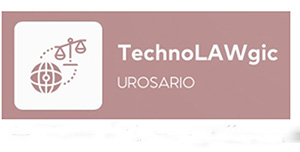
COMMERCIAL LAW, TECHNOLOGY, AND INTELLECTUAL PROPERTY RESEARCH INCUBATOR -TECHNOLAWGIC-
This Research Incubator was created in January 2013 in response to the need to establish, within the Private Law Group of the Faculty of Jurisprudence, a research training process on issues arising from the relationship between traditional institutions of commercial law, intellectual property, and technology.

DEMOCRATIC INCLUSION AND LEGAL PATHWAYS RESEARCH INCUBATOR
The incubator is a space for formative research that aims to strengthen the abilities of undergraduate and postgraduate students in research techniques and using research tools. Since its creation, the incubator has worked on three projects:

INTERNATIONAL LAW OBSERVATORY RESEARCH INCUBATOR
Through state contracting, the government can fulfill its functions and ensure the general well-being of the country’s residents. This situation causes citizens, media, and supervisory bodies to be interested in how public resources are used. However, it is undeniable that, despite the importance of this state activity, unwanted situations have arisen that require a prompt and practical solution.

POST CONFLICT RESEARCH INCUBATOR
This incubator encourages undergraduate students to research and reflect academically on issues related to peacebuilding, democracy, and human rights. Thus, it aims to establish Universidad del Rosario as an important reference point for research regarding post conflict in Colombia.

PROCEDURAL LAW RESEARCH INCUBATOR
This research incubator consists of a group of undergraduate students who are interested in topics relating to procedural law and the law of evidence. Its members are not permanent, but rotated. After they complete their research work or the competition in which they were competing, they leave the incubator, leaving room for other students to replace them.

CIVIL PROPERTY LAW RESEARCH INCUBATOR - STATE PROPERTY
The political, social, and cultural change that the country has faced over recent years, along with the demands from educational supervisory bodies, have led universities in the country to focus their attention on promoting research. There is a particular emphasis on aligning academic curricula with research training processes.

INTERNATIONAL ECONOMIC LAW AND GLOBAL GOVERNANCE RESEARCH INCUBATOR
This research incubator aims to create a space for study and research, in particular to analyze the relationship between international economic law and global governance. The incubator will take on an interdisciplinary and critical perspective, approaching the issue from economic theory, political theory, international relations, and international law. The incubator will be made up of undergraduate and postgraduate students, as well as researchers and professors.
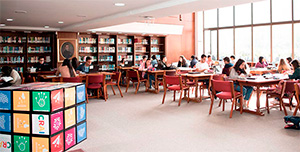
RESEARCH INCUBATOR - IMPACT OF DEVELOPMENT PROJECTS (INACTIVE)
This research incubator began its activities in the second semester of 2019, with the aim of creating a space for professors from different areas within public law (constitutional, administrative, and environmental) to exchange ideas. The goal is to facilitate research through the sharing of knowledge and ideas.

SPECIAL JURISDICTION FOR PEACE INCUBATOR
Colombia is currently experiencing a historic moment. It is implementing the Peace Agreement, signed by both the Colombian Government and the FARC-EP. As outlined in the victim-focused part of the agreement, the implementation of the Integral System of Truth, Justice, Reparation, and non-Repetition (SIVJRNR), is not without its challenges. From the perspective of international human rights law, international humanitarian law, international criminal law, and even the perspectives of the different parties, the implementation process faces complex obstacles.

PUBLIC FINANCE AND TAX LAW OBSERVATORY RESEARCH INCUBATOR
The Public Finance and Tax Law Observatory aims to monitor, analyze, and disseminate the national and territorial policies related to public finance and tax regulations in Colombia. Its purpose is to support Universidad del Rosario’s mission with the aforementioned areas.

AGERE: CONSTITUTIONAL LAW INCUBATOR
The constitutional law incubator AGERE is a group of students and professors aiming to democratize the study of constitutional law and apply it to practical perspectives for the people of society. The incubator dedicates itself to the research, implementation, and creation of materials that can be used as tools by people living in societies marked by injustices and problems. Thus, the incubator’s focus is to apply law to society and people, empowering them to make use of these tools.

LAW, ECONOMICS, AND SOCIETY RESEARCH INCUBATOR
This research incubator is a space for researching and discussing relevant issues from a legal, economic, and societal perspective. It identifies issues that can be addressed in an interdisciplinary way (drawing from diverse branches of private law, legal theory, sociology, and economics). This incubator enables the students and professors within it to engage in discussions on the contemporary issues of private law and legal theory in an interdisciplinary way, drawing from various areas of private law (such as corporate, contract, and competition law), as well as exploring their economic implications. The analysis will extend from academia to practical implications in society.
LEGAL CLINICS AND OBSERVATORIES
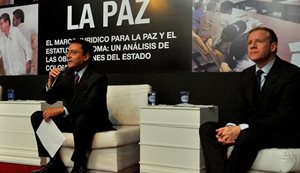
LEGISLATIVE OBSERVATORY
The Legislative and Opinion Observatory was created in 2005 with the aim of monitoring the activity of Congress and bringing this important body closer to the Academy. Over time, the Observatory has become a crucial channel of contact between Congress and the University, aiming on one hand to involve the academy in the law-making process, and thus, in debates that are especially relevant to the country and must take place in different sectors of society. Furthermore, this is important within the University, as it serves as a center of thought and professional education.

INTERNATIONAL LEGAL CLINIC
The International Legal Clinic is held annually in collaboration with the Iberoamerican Institute of the Hague for Peace, Human Rights, and International Justice (“IIH”), and the Victims’ Representation Unit of the International Criminal Court (“CPI”).

INTERNATIONAL LAW OBSERVATORY
Since 2007, The International Law Observatory has connected with more than 80 students from the Faculty of Jurisprudence, who, each year, have produced a comprehensive report on the work of all the international tribunals and organizations that are most relevant to Colombia. The reports include files, introductions, and references prepared by the students. The students publish an analytical introduction to the work of each organization studied, created in collaboration with their supervising professors. This introduction is published in both the digital and printed versions of the Colombian Yearbook of International Law, a journal catalogued in Scopus. Academic articles published by experts in the field of International Law are added to this work.

OBSERVAJEP
OBSERVAJEP’S main objective is to study and analyze the structure and functioning of this jurisdiction, conducting independent and impartial monitoring of its legal implementation.

MONEY LAUNDERING AND ASSET SEIZURE OBSERVATORY
The Money Laundering and Asset Seizure Observatory is a research and analysis group consisting of academic researchers from Universidad del Rosario, professionals from the Financial Information and Analysis Unit (UIAF), and the Financial Superintendence. Together, they study trends, dynamics, issues related to money laundering, and asset seizure. In this sense, it focuses on analyzing the impact of these legal institutions within the national and international framework, aiming to propose tools to develop a criminal policy for the fight of the Colombian State against organized crime.

LAND OBSERVATORY
The Restitution and Regulation of Agrarian Property Rights Observatory aims to describe and understand, from a comparative point of view, the institutions that regulate property rights in Colombia. It examines their relationship with armed conflict, land seizures, the political system, and the state.

LABOR OBSERVATORY (LaboUR)
The Labor Observatory of Universidad del Rosario (LaboUR), which is affiliated with the Faculties of Economics and Jurisprudence at Universidad del Rosario, emerged in 2014 as an academic initiative aiming to establish a direct dialogue with society regarding the main issues in the labor market.
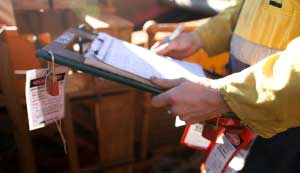
COLOMBIAN MINING OBSERVATORY (OCMI)
The Colombian Mining Observatory (OCMI) is a center for research, knowledge management, and reflection on mining activity in the country. It uses its online platform to ensure a constant and updated source of information. Although this initiative is led by the Faculty of Jurisprudence at Universidad del Rosario, it receives support from other academy managers, NGOs, civil society, international organizations, companies, and public entities.

CENTER FOR INTERNET AND SOCIETY (ISUR)
The Center for Internet and Society at Universidad del Rosario (ISUR) is an interdisciplinary space for research and education that operates with a public interest and from a human rights perspective. It deals with issues related to the social challenges posed by technological changes.
PUBLICATIONS
LA DIRECCIÓN DE INVESTIGACIÓN DE FACULTAD SOCIALIZA A TRAVÉS DE ESTA SECCIÓN, INFORMACIÓN SOBRE CONVOCATORIAS PARA PUBLICACIÓN EN REVISTAS QUE PUEDEN LLEGAR A SER DE INTERÉS PARA SU CUERPO DE PROFESORES Y COMUNIDAD EN GENERAL
RESEARCH NETWORKS
PROGRAMA DE INVESTIGACIÓN
Estrategia de respuesta integrada desde el derecho público comparado e internacional para enfrentar en Colombia la corrupción asociada al crimen transnacional organizado, a la luz de una aproximación evolutiva a las dinámicas del narcotráfico marítimo por medio de simulación de sistemas sociales.
Convocatoria Minciencias 852-2019 / Convocatoria de Programas Conectando Conocimiento 2019.
Programa de Investigacion:
Estrategia de respuesta integrada desde el derecho público comparado e internacional para enfrentar en Colombia la corrupción asociada al crimen transnacional organizado, a la luz de una aproximación evolutiva a las dinámicas del narcotráfico marítimo por medio de simulación de sistemas sociales.
Descripción:
El presente programa propone la construcción de una estrategia de respuesta integrada, desde el derecho público comparado e internacional, para enfrentar en Colombia la corrupción asociada al crimen transnacional organizado, a la luz de una aproximación evolutiva a las dinámicas del narcotráfico marítimo por medio de simulación de sistemas sociales. Para ello, se llevará a cabo, con la ayuda de instrumentos de simulación de sistemas sociales (particularmente, programa NetLogo 5.0), una aproximación a la comprensión de las dinámicas de evolución, adaptación y flexibilidad de las organizaciones involucradas en el narcotráfico marítimo en Colombia y las Américas, desde las perspectivas teóricas de las ‘organizaciones como sistemas sociales’ y de los ‘sistemas complejos adaptativos’. Con ello se pretende comprender mejor las lógicas de comportamiento de los actores en la cadena de tráfico marítimo de estupefacientes, las tareas que desempeñan, sus prácticas de corrupción, sus formas de distribución y sus rutas y modos de transporte, superando el paradigma que las representa como organizaciones jerarquizadas, rígidas y centralizadas, propio de los estudios realizados hasta el momento sobre las estructuras del narcotráfico. A la luz de esta información, el programa analizará el alcance y limitaciones que presenta el derecho público. colombiano, especialmente a través del derecho electoral, el derecho administrativo, el derecho tributario y el derecho penal, para responder a la corrupción asociada al crimen transnacional organizado. A continuación, se explorarán las herramientas que ofrecen las experiencias de derecho público comparado en diversos estados de la región como Brasil, Chile, y México, así como los mecanismos de naturaleza penal y no penal que ofrece el derecho internacional, con particular atención a los aportes del derecho penal transnacional y del derecho internacional penal, para enfrentar este fenómeno. Finalmente, se construirá una estrategia jurídica integrada para incrementar la eficacia de la respuesta frente al mismo en Colombia.
Objetivo:
Diseñar una estrategia de respuesta integrada desde el derecho público comparado e internacional para enfrentar en Colombia la corrupción asociada al crimen transnacional organizado, a la luz de una aproximación evolutiva a las dinámicas del narcotráfico marítimo por medio de simulación de sistemas sociales.
Fecha de Inicio: agosto 2020.
Fecha de Finalización: agosto 2023.
Investigadores:
Héctor Olasolo Alonso.
Enrique Prieto-Rios.
Ricardo Abello Galvis.
Manuel Alberto Restrepo Medina.
Walter Orlando Arevalo Ramírez.
Vanessa Suelt Cock.
Antonio Varón Mejia.
Mario Iván Urueña Sánchez.
Rafael Alberto Tamayo Alvarez.
Norberto Hernández Jiménez.
Resultados obtenidos: ver información aquí.
CONVOCATORIA PARA LA SELECCIÓN, CONTRATACIÓN Y SEGUIMIENTO DE ASISTENTE DE INVESTIGACIÓN PARA PROYECTO
| Construyendo una línea de base para comprender la situación de las mujeres en la academia legal latinoamericana | Descargar |
GESTIÓN - PROCEDIMIENTO- CERTIFICACIÓN DE EXPERIENCIA
Suggested procedure for managing the experience certification model.
The following steps are to be following when filling in the experience certification model:
- Download the experience certification model when needed. Download the model (in Spanish or English) at the bottom of the page.
- Fill in all the fields of the form. These fields correspond to the contract (research or consultancy) signed by the parties.
- To fill in the codes corresponding to the UNSPSC Classification, you can refer to the Goods and Services Classifier provided by the Chamber of Commerce of Bogotá , accessible at:
ttps://linea.ccb.org.co/clasificadorunspsc/forms/FormularioClasificador.aspx - Once the form is filled in, the professor or researcher leading the project must send the document to the contracting entity to be signed.
- Once signed by the contracting entity, the professor or researcher must send the form to the Administrative and Financial Directorate of the Faculty.
- If the contracting entity is, for any reason, unable to sign this model, the professor must fill in the form and send it to the Administrative and Financial Directorate of the Faculty.
If you have any questions or concerns, please send an email to .jurisprudencia@urosario.edu.co
Model - Certification Spanish Find out more Model - Certification English Find out more
CURRENT AGREEMENTS
Framework Cooperation Agreement between Colegio Mayor de Nuestra Señora del Rosario and the Hanns Seidel Stiftung EV Foundation - Colombia
It aims to promote cooperative activities in teaching, research, and outreach, especially in fields related to the strengthening of law, democracy, human rights, and the rule of law.
Collaboration Agreement between Colegio Mayor de Nuestra Señora del Rosario and the Konrad Adenauer Stiftung Foundation
It aims to promote cooperative activities in teaching, research, and outreach, especially in fields related to the strengthening of law, democracy, human rights, and the rule of law.
BOLETINES
GALLERY
Videos sobre las publicaciones
Galería de eventos
CONTACT
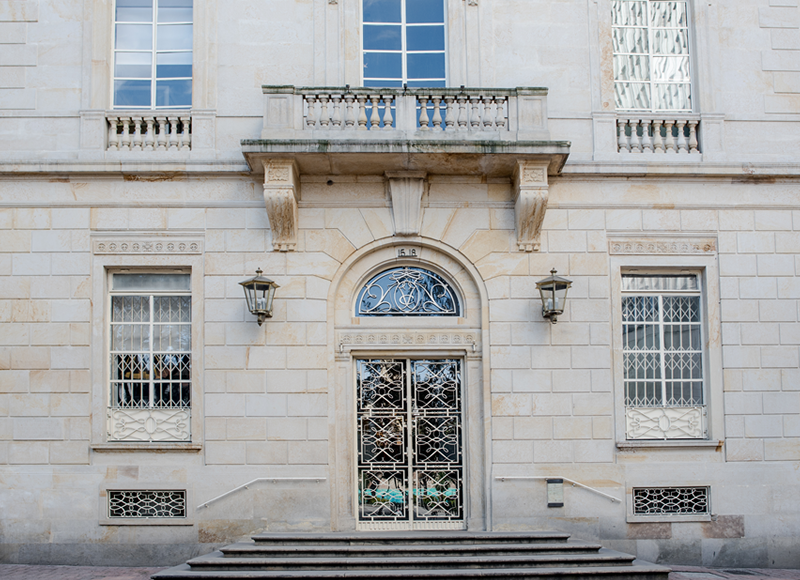
Find us at the Jockey Building – Level 2 located at Carrera 6 # 15-18.
Send us an email to: investigacion.jurisprudencia@urosario.edu.co
Check out our social media networks:
Research Department
RESEARCH DEPARTMENT

Mission
To assist in creating a high-quality research agenda aimed at establishing the Faculty as a national and international center for innovative and socially impactful research. This research should also have a positive impact on the teaching and learning processes within the Faculty.
Vision
The Research Department is a branch of the Faculty of Jurisprudence at Universidad del Rosario, dedicated to serving and supporting faculty researchers with their research interests. It offers efficient and innovative services for creating high-quality research agendas.
OBJECTIVES
The short and medium-term goals of the Faculty of Jurisprudence’s Research Department are as follows:
To carry out activities to share ongoing research projects within the Faculty
To disseminate research output, products of the formative research within the Faculty
To help create spaces for sharing formative researc
MAIN TOPICS
The objective of this research topic is to promote theoretical-legal reflection on the most significant issues that arise during the course of an entrepreneur’s activities. This will be done within the framework of their management abilities, internal relationships (among administrators, owners, and employees) and external relationships (with clients and competitors). This topic seeks to investigate and contribute to debates on consumption, competition, and corporate governance.
This topic investigates, from an interdisciplinary perspective, the challenges and problems facing the field of law due to globalization. Studies on the legitimacy, efficiency, and operating of international justice and international institutions are particularly relevant, not only in relation to states, but also in relation to individuals, companies, and communities, among others.
This topic identifies and addresses, from a multidisciplinary perspective, the difficulties and challenges that Colombia faces in advancing the social rule of law. This aims to ensure a fairer and more inclusive citizenship, and to achieve long-lasting peace. It is particularly relevant to undertake research that critically analyzes the implementation of peace agreements. This is to ensure that transitional justice contributes to strengthening the rule of law and the ways of achieving democratic inclusion through the legal and institutional channels of the state.
As the national state, sovereignty, and traditional theory of the separation of powers are eroded, we endeavor to understand, analyze, and critique, from a comparative perspective, the internal and external dynamics that have characterized public power and public policies in Colombia.
Consulte aquí los términos y condiciones
Team
TEAM
Research Groups

HUMAN RIGHTS RESEARCH GROUP
MinCiencias Category
Group “A1” – Call for Proposals 2021
Director: María Teresa Palacios Sanabria
The Human Rights Research Group at Universidad del Rosario was established in 2003. It currently consists of a team of highly qualified professors, Including experts in human rights, who have extensive experience in, and are committed to, research projects, publishing, teaching, and outreach in their field of research.
The group researches topics such as: Human rights protection mechanisms, public policies, democracy, violence and peace, environmental rights, women’s rights, migrants, victims, persons with disabilities, elderly people, and other groups under special protection. It also plays a role in educating and advocating for human rights through its Research Incubator and its Public Interest and Human Rights Clinic.
Recognized by Colciencias for outstanding results, quality and visibility in research, training, dissemination, and innovation efforts, the Group has been awarded the prestigious A1 Category in the national call for the recognition and measurement of research, technological development, and innovation groups. This acknowledgment extends to researchers within the National System of Science, Technology, and Innovation - SNCTI 2021.
Active research areas within the group:
- Emerging Rights and Differential Approach
- Human Rights Protection Mechanisms
- Post Conflict and Democracy

INTERNATIONAL LAW RESEARCH GROUP
MinCiencias Category
Group “A1” – Call for Proposals 2021
Director: Enrique Alberto Prieto-Ríos
In 2000, the Faculty of Jurisprudence started a project to identify strengths and weaknesses within its areas of research, aimed at bolstering research efforts. It became evident that international law was a common thread throughout the project. On this matter, within the guidelines on areas of research in the document “Policies, strategies, and actions for improving research”, it is clear that within the previously defined areas of strength and the agenda of identified problems, the topic of “international law” is consistently present. In this sense, in 2001 the initiative was taken to focus on international law as a research topic, and, more broadly, to enhance academic support in the field. This process was formalized in 2006 with the establishment of what we know today as the International Law Research Group. It started its work as an independent group, and thanks to constant research and the participation of new researchers, it managed to establish itself.
Recognized by Colciencias for outstanding results, quality and visibility in research, training, dissemination, and innovation efforts, the Group has been awarded the prestigious A1 Category in the national call for the recognition and measurement of research, technological development, and innovation groups. This acknowledgment extends to researchers within the National System of Science, Technology, and Innovation - SNCTI 2021.
Active research areas within the group:
- Critical and Theoretical Approaches to International Law
- International Law and Globalization
- International Law in the context of different international and national tribunals

PRIVATE LAW RESEARCH GROUP
MinCiencias Category
Group “A1” – Call for Proposals 2021
Director: David Hernando Barbosa Ramírez
From 2001 until October 2006, private law researchers associated their work with the Carlos Holguín Public Law Research Group. Within the framework of this group, research in the areas of civil law commenced in 2001, commercial law in 2003, and arbitration in 2005. However, after two years of important academic output in specific areas of private law, the Private Law Research Group independently registered with COLCIENCIAS.
The group aims to carry out high-quality academic research to advance the understanding of private law and to address current issues in the field. In this context, it aims to:
- Examine the regulations of national private law and identify challenges regarding their application, with the aim of coming up with solutions that align legislative discourse with Colombia’s socio-economic needs.
- Conduct legal studies and engage in academic forums that enable reflection on new national and international trends regarding private law, and exchange and disseminate the insights gained on both a national and international scale.
- Analyze how Colombian private law influences integration processes in supranational groups, and the challenges this poses to the development of traditional legal institutions, using tools developed by comparative law.
With this in mind, the group has a significant number of researchers who studied at prestigious Colombian and foreign universities, and whose work has been published and disseminated in national and international books and journals.
Recognized by Colciencias for outstanding results, quality and visibility in research, training, dissemination, and innovation efforts, the Group has been awarded the prestigious A1 Category in the national call for the recognition and measurement of research, technological development, and innovation groups. This acknowledgment extends to researchers within the National System of Science, Technology, and Innovation - SNCTI 2021.
Active research areas within the group:
1.- Technology in Law and Law in Technology
2.- Inter-group research in Gender and Law
3.- Arbitration
4.- Civil Law
5.- Commercial Law
6.- Procedural Law and the Law of Evidence
7.- Labor Law and Social Security
8.- Law of Persons and Family Law
9.- Theories of Property and Sustainable Development in Urban and Rural areas of Colombia
10.- Confluence of Private and Public Law

PUBLIC LAW RESEARCH GROUP
MinCiencias Category
Group “A1” – Call for Proposals 2021
Director: Nicolás Figueroa García Herreros
The Public Law Research Group was created in August 1998, and was the Faculty’s first research group.
Objectives of the research group
The research that the group carries out addresses problems specific to Colombian reality, with a critical and interdisciplinary perspective. The Research Group believes that legal problems can only be analyzed in their entirety through dialogue with other social sciences, and when scientific knowledge is enriched or formed by contemporary methodologies and theories that illuminate issues traditionally unaddressed or made invisible by law. It has eight areas of research.
Achievements
The results of the projects that were carried out by the Public Law research team have enabled the Faculty’s research to reach both a national and international stage, have earned the University institutional accreditation both nationally and internationally, and have enabled the approval of the Master's in Administrative Law and the creation a Master’s and Doctoral program in Law.
Recognized by Colciencias for outstanding results, quality and visibility in research, training, dissemination, and innovation efforts, the Group has been awarded the prestigious A1 Category in the national call for the recognition and measurement of research, technological development, and innovation groups. This acknowledgment extends to researchers within the National System of Science, Technology, and Innovation - SNCTI 2021.
Active research areas within the group:
1.- Inter-group Research in Gender and Law
2.- Legal Systems, Constitutional Systems, and Protection
3.- Trends and Perspectives of Administrative Law
4.- The State on the Board: Globalization, Justice, and Responsibility
5. Environmental Law
6.- Inclusive Administrative Law, Geography, Inequality, and Technology
7.- Theoretical, Critical, and Interdisciplinary Legal Studies

CRIMINAL LAW RESEARCH GROUP
MinCiencias Category
Group “A1” – Call for Proposals 2021
Director: Wilson Martínez Sánchez
Recognized by Colciencias for outstanding results, quality and visibility in research, training, dissemination, and innovation efforts, the Group has been awarded the prestigious A1 Category in the national call for the recognition and measurement of research, technological development, and innovation groups. This acknowledgment extends to researchers within the National System of Science, Technology, and Innovation - SNCTI 2021.
The Criminal Law Research Group was officially established on August 19, 2008, and currently engages in various research activities with the aim of bolstering research in the following areas:
1. Economic Criminal Law
2. Inter-Group Research in Gender and Law
3. Current Issues in Criminal Law
4. Medical Responsibility
Research Incubators

LABOR LAW AND SOCIAL SECURITY RESEARCH INCUBATOR
The Labor Law and Social Security Research Incubator emerged in 2008 as an academic initiative aimed at providing training in research topics and methodology for undergraduate students. These students, under the guidance of a mentor and by consistently submitting agreed-upon work, are interested in completing their course by submitting an original monograph or thesis.

LEGAL THEORY RESEARCH INCUBATOR
The Legal Theory Research Incubator was established in 2017 by students from the legal theory course led by Dr. Grenfieth Sierra, its director. Paula Andrea Borja Corredor is its coordinator and also an active member of the group. It has a method of assisted research through which its members are encouraged to enhance their research, argumentative, methodological, analytical, and interpretative skills by writing an essay on a topic of interest. Furthermore, the research incubator has established itself as a space for members to debate current issues, and has featured lectures by guest international professors.

INTERNATIONAL LEGAL CLINIC
This project sheet is applicable to research proposals that the professor will undertake as part of their work plan, and for proposals managed with various entities that do not require the formal presentation of a document or project sheet, and from which resources (financial or in-kind) have been obtained.

HUMAN RIGHTS IN DIGITAL ENVIRONMENTS
The human rights in digital environments research incubator addresses and enhances the potential for the internet to advance human rights such as freedom of expression, inclusion, and digital literacy. Likewise, it studies emerging issues in digital environments regarding law, such as privacy and self-determination, which are threated by state institutions and corporate powers.

STATE CONTRACTING INCUBATOR
Through state contracting, the government can fulfill its functions and ensure the general well-being of the country’s residents. This situation causes citizens, media, and supervisory bodies to be interested in how public resources are used. However, it is undeniable that, despite the importance of this state activity, unwanted situations have arisen that require a prompt and practical solution.

HUMAN RIGHTS RESEARCH INCUBATOR
The political, social, and cultural change that the country has faced over recent years, along with the demands from educational supervisory bodies, have led universities in the country to focus their attention on promoting research. There is a particular emphasis on aligning academic curricula with research training processes.

FISCAL POLICY FROM A GENDER PERSPECTIVE
Incorporating budgets and taxes with a gender focus must be aimed at solving issues that arise at the core of society. Therefore, it is the duty of governments to ensure that these efforts are as effective as possible. This construction should be based on the identification of the different roles that men and women play in society, recognizing that their needs and interests are different. It not only involves abolishing any practices that violate and exclude women, but it also enables the granting of benefits proposed and promoted through the law.

COMMERCIAL LAW, TECHNOLOGY, AND INTELLECTUAL PROPERTY RESEARCH INCUBATOR -TECHNOLAWGIC-
This Research Incubator was created in January 2013 in response to the need to establish, within the Private Law Group of the Faculty of Jurisprudence, a research training process on issues arising from the relationship between traditional institutions of commercial law, intellectual property, and technology.

DEMOCRATIC INCLUSION AND LEGAL PATHWAYS RESEARCH INCUBATOR
The incubator is a space for formative research that aims to strengthen the abilities of undergraduate and postgraduate students in research techniques and using research tools. Since its creation, the incubator has worked on three projects:

INTERNATIONAL LAW OBSERVATORY RESEARCH INCUBATOR
Through state contracting, the government can fulfill its functions and ensure the general well-being of the country’s residents. This situation causes citizens, media, and supervisory bodies to be interested in how public resources are used. However, it is undeniable that, despite the importance of this state activity, unwanted situations have arisen that require a prompt and practical solution.

POST CONFLICT RESEARCH INCUBATOR
This incubator encourages undergraduate students to research and reflect academically on issues related to peacebuilding, democracy, and human rights. Thus, it aims to establish Universidad del Rosario as an important reference point for research regarding post conflict in Colombia.

PROCEDURAL LAW RESEARCH INCUBATOR
This research incubator consists of a group of undergraduate students who are interested in topics relating to procedural law and the law of evidence. Its members are not permanent, but rotated. After they complete their research work or the competition in which they were competing, they leave the incubator, leaving room for other students to replace them.

CIVIL PROPERTY LAW RESEARCH INCUBATOR - STATE PROPERTY
The political, social, and cultural change that the country has faced over recent years, along with the demands from educational supervisory bodies, have led universities in the country to focus their attention on promoting research. There is a particular emphasis on aligning academic curricula with research training processes.

INTERNATIONAL ECONOMIC LAW AND GLOBAL GOVERNANCE RESEARCH INCUBATOR
This research incubator aims to create a space for study and research, in particular to analyze the relationship between international economic law and global governance. The incubator will take on an interdisciplinary and critical perspective, approaching the issue from economic theory, political theory, international relations, and international law. The incubator will be made up of undergraduate and postgraduate students, as well as researchers and professors.

RESEARCH INCUBATOR - IMPACT OF DEVELOPMENT PROJECTS (INACTIVE)
This research incubator began its activities in the second semester of 2019, with the aim of creating a space for professors from different areas within public law (constitutional, administrative, and environmental) to exchange ideas. The goal is to facilitate research through the sharing of knowledge and ideas.

SPECIAL JURISDICTION FOR PEACE INCUBATOR
Colombia is currently experiencing a historic moment. It is implementing the Peace Agreement, signed by both the Colombian Government and the FARC-EP. As outlined in the victim-focused part of the agreement, the implementation of the Integral System of Truth, Justice, Reparation, and non-Repetition (SIVJRNR), is not without its challenges. From the perspective of international human rights law, international humanitarian law, international criminal law, and even the perspectives of the different parties, the implementation process faces complex obstacles.

PUBLIC FINANCE AND TAX LAW OBSERVATORY RESEARCH INCUBATOR
The Public Finance and Tax Law Observatory aims to monitor, analyze, and disseminate the national and territorial policies related to public finance and tax regulations in Colombia. Its purpose is to support Universidad del Rosario’s mission with the aforementioned areas.

AGERE: CONSTITUTIONAL LAW INCUBATOR
The constitutional law incubator AGERE is a group of students and professors aiming to democratize the study of constitutional law and apply it to practical perspectives for the people of society. The incubator dedicates itself to the research, implementation, and creation of materials that can be used as tools by people living in societies marked by injustices and problems. Thus, the incubator’s focus is to apply law to society and people, empowering them to make use of these tools.

LAW, ECONOMICS, AND SOCIETY RESEARCH INCUBATOR
This research incubator is a space for researching and discussing relevant issues from a legal, economic, and societal perspective. It identifies issues that can be addressed in an interdisciplinary way (drawing from diverse branches of private law, legal theory, sociology, and economics). This incubator enables the students and professors within it to engage in discussions on the contemporary issues of private law and legal theory in an interdisciplinary way, drawing from various areas of private law (such as corporate, contract, and competition law), as well as exploring their economic implications. The analysis will extend from academia to practical implications in society.
Legal Clinics and Observatories
LEGAL CLINICS AND OBSERVATORIES

LEGISLATIVE OBSERVATORY
The Legislative and Opinion Observatory was created in 2005 with the aim of monitoring the activity of Congress and bringing this important body closer to the Academy. Over time, the Observatory has become a crucial channel of contact between Congress and the University, aiming on one hand to involve the academy in the law-making process, and thus, in debates that are especially relevant to the country and must take place in different sectors of society. Furthermore, this is important within the University, as it serves as a center of thought and professional education.

INTERNATIONAL LEGAL CLINIC
The International Legal Clinic is held annually in collaboration with the Iberoamerican Institute of the Hague for Peace, Human Rights, and International Justice (“IIH”), and the Victims’ Representation Unit of the International Criminal Court (“CPI”).

INTERNATIONAL LAW OBSERVATORY
Since 2007, The International Law Observatory has connected with more than 80 students from the Faculty of Jurisprudence, who, each year, have produced a comprehensive report on the work of all the international tribunals and organizations that are most relevant to Colombia. The reports include files, introductions, and references prepared by the students. The students publish an analytical introduction to the work of each organization studied, created in collaboration with their supervising professors. This introduction is published in both the digital and printed versions of the Colombian Yearbook of International Law, a journal catalogued in Scopus. Academic articles published by experts in the field of International Law are added to this work.

OBSERVAJEP
OBSERVAJEP’S main objective is to study and analyze the structure and functioning of this jurisdiction, conducting independent and impartial monitoring of its legal implementation.

MONEY LAUNDERING AND ASSET SEIZURE OBSERVATORY
The Money Laundering and Asset Seizure Observatory is a research and analysis group consisting of academic researchers from Universidad del Rosario, professionals from the Financial Information and Analysis Unit (UIAF), and the Financial Superintendence. Together, they study trends, dynamics, issues related to money laundering, and asset seizure. In this sense, it focuses on analyzing the impact of these legal institutions within the national and international framework, aiming to propose tools to develop a criminal policy for the fight of the Colombian State against organized crime.

LAND OBSERVATORY
The Restitution and Regulation of Agrarian Property Rights Observatory aims to describe and understand, from a comparative point of view, the institutions that regulate property rights in Colombia. It examines their relationship with armed conflict, land seizures, the political system, and the state.

LABOR OBSERVATORY (LaboUR)
The Labor Observatory of Universidad del Rosario (LaboUR), which is affiliated with the Faculties of Economics and Jurisprudence at Universidad del Rosario, emerged in 2014 as an academic initiative aiming to establish a direct dialogue with society regarding the main issues in the labor market.

COLOMBIAN MINING OBSERVATORY (OCMI)
The Colombian Mining Observatory (OCMI) is a center for research, knowledge management, and reflection on mining activity in the country. It uses its online platform to ensure a constant and updated source of information. Although this initiative is led by the Faculty of Jurisprudence at Universidad del Rosario, it receives support from other academy managers, NGOs, civil society, international organizations, companies, and public entities.

CENTER FOR INTERNET AND SOCIETY (ISUR)
The Center for Internet and Society at Universidad del Rosario (ISUR) is an interdisciplinary space for research and education that operates with a public interest and from a human rights perspective. It deals with issues related to the social challenges posed by technological changes.
Publications
PUBLICATIONS
Convocatorias para publicar en revistas
LA DIRECCIÓN DE INVESTIGACIÓN DE FACULTAD SOCIALIZA A TRAVÉS DE ESTA SECCIÓN, INFORMACIÓN SOBRE CONVOCATORIAS PARA PUBLICACIÓN EN REVISTAS QUE PUEDEN LLEGAR A SER DE INTERÉS PARA SU CUERPO DE PROFESORES Y COMUNIDAD EN GENERAL
Research Networks
RESEARCH NETWORKS
Proyectos Minciencias - Activos
PROGRAMA DE INVESTIGACIÓN
Estrategia de respuesta integrada desde el derecho público comparado e internacional para enfrentar en Colombia la corrupción asociada al crimen transnacional organizado, a la luz de una aproximación evolutiva a las dinámicas del narcotráfico marítimo por medio de simulación de sistemas sociales.
Convocatoria Minciencias 852-2019 / Convocatoria de Programas Conectando Conocimiento 2019.
Programa de Investigacion:
Estrategia de respuesta integrada desde el derecho público comparado e internacional para enfrentar en Colombia la corrupción asociada al crimen transnacional organizado, a la luz de una aproximación evolutiva a las dinámicas del narcotráfico marítimo por medio de simulación de sistemas sociales.
Descripción:
El presente programa propone la construcción de una estrategia de respuesta integrada, desde el derecho público comparado e internacional, para enfrentar en Colombia la corrupción asociada al crimen transnacional organizado, a la luz de una aproximación evolutiva a las dinámicas del narcotráfico marítimo por medio de simulación de sistemas sociales. Para ello, se llevará a cabo, con la ayuda de instrumentos de simulación de sistemas sociales (particularmente, programa NetLogo 5.0), una aproximación a la comprensión de las dinámicas de evolución, adaptación y flexibilidad de las organizaciones involucradas en el narcotráfico marítimo en Colombia y las Américas, desde las perspectivas teóricas de las ‘organizaciones como sistemas sociales’ y de los ‘sistemas complejos adaptativos’. Con ello se pretende comprender mejor las lógicas de comportamiento de los actores en la cadena de tráfico marítimo de estupefacientes, las tareas que desempeñan, sus prácticas de corrupción, sus formas de distribución y sus rutas y modos de transporte, superando el paradigma que las representa como organizaciones jerarquizadas, rígidas y centralizadas, propio de los estudios realizados hasta el momento sobre las estructuras del narcotráfico. A la luz de esta información, el programa analizará el alcance y limitaciones que presenta el derecho público. colombiano, especialmente a través del derecho electoral, el derecho administrativo, el derecho tributario y el derecho penal, para responder a la corrupción asociada al crimen transnacional organizado. A continuación, se explorarán las herramientas que ofrecen las experiencias de derecho público comparado en diversos estados de la región como Brasil, Chile, y México, así como los mecanismos de naturaleza penal y no penal que ofrece el derecho internacional, con particular atención a los aportes del derecho penal transnacional y del derecho internacional penal, para enfrentar este fenómeno. Finalmente, se construirá una estrategia jurídica integrada para incrementar la eficacia de la respuesta frente al mismo en Colombia.
Objetivo:
Diseñar una estrategia de respuesta integrada desde el derecho público comparado e internacional para enfrentar en Colombia la corrupción asociada al crimen transnacional organizado, a la luz de una aproximación evolutiva a las dinámicas del narcotráfico marítimo por medio de simulación de sistemas sociales.
Fecha de Inicio: agosto 2020.
Fecha de Finalización: agosto 2023.
Investigadores:
Héctor Olasolo Alonso.
Enrique Prieto-Rios.
Ricardo Abello Galvis.
Manuel Alberto Restrepo Medina.
Walter Orlando Arevalo Ramírez.
Vanessa Suelt Cock.
Antonio Varón Mejia.
Mario Iván Urueña Sánchez.
Rafael Alberto Tamayo Alvarez.
Norberto Hernández Jiménez.
Resultados obtenidos: ver información aquí.
Otras Convocatorias
CONVOCATORIA PARA LA SELECCIÓN, CONTRATACIÓN Y SEGUIMIENTO DE ASISTENTE DE INVESTIGACIÓN PARA PROYECTO
| Construyendo una línea de base para comprender la situación de las mujeres en la academia legal latinoamericana | Descargar |
Management – Procedure – Experience Certification
GESTIÓN - PROCEDIMIENTO- CERTIFICACIÓN DE EXPERIENCIA
Suggested procedure for managing the experience certification model.
The following steps are to be following when filling in the experience certification model:
- Download the experience certification model when needed. Download the model (in Spanish or English) at the bottom of the page.
- Fill in all the fields of the form. These fields correspond to the contract (research or consultancy) signed by the parties.
- To fill in the codes corresponding to the UNSPSC Classification, you can refer to the Goods and Services Classifier provided by the Chamber of Commerce of Bogotá , accessible at:
ttps://linea.ccb.org.co/clasificadorunspsc/forms/FormularioClasificador.aspx - Once the form is filled in, the professor or researcher leading the project must send the document to the contracting entity to be signed.
- Once signed by the contracting entity, the professor or researcher must send the form to the Administrative and Financial Directorate of the Faculty.
- If the contracting entity is, for any reason, unable to sign this model, the professor must fill in the form and send it to the Administrative and Financial Directorate of the Faculty.
If you have any questions or concerns, please send an email to .jurisprudencia@urosario.edu.co
Model - Certification Spanish Find out more Model - Certification English Find out more
Current Agreements
CURRENT AGREEMENTS
Framework Cooperation Agreement between Colegio Mayor de Nuestra Señora del Rosario and the Hanns Seidel Stiftung EV Foundation - Colombia
It aims to promote cooperative activities in teaching, research, and outreach, especially in fields related to the strengthening of law, democracy, human rights, and the rule of law.
Collaboration Agreement between Colegio Mayor de Nuestra Señora del Rosario and the Konrad Adenauer Stiftung Foundation
It aims to promote cooperative activities in teaching, research, and outreach, especially in fields related to the strengthening of law, democracy, human rights, and the rule of law.
Boletines de Investigación
BOLETINES
Gallery
GALLERY
Videos sobre las publicaciones
Galería de eventos
Contact
CONTACT

Find us at the Jockey Building – Level 2 located at Carrera 6 # 15-18.
Send us an email to: investigacion.jurisprudencia@urosario.edu.co
Check out our social media networks:


